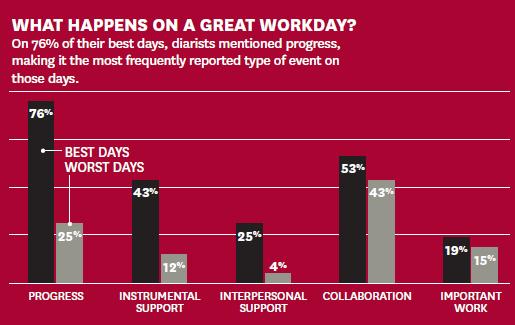How people really learn
30 Jul
The Anxiety of Learning is the title of a Harvard Business Review article offering a very interesting perspective on what motivates people to learn new things. The authors argue that unless they feel threatened, people are unwilling to learn. This blog post explores the idea further.
It is a well known fact that people are resistant to change. We find comfort in status quo because even though it might not be the best thing possible, we at least know what we can expect from it and we have learnt how to operate in such system. It is the same case with learning – there is cost attached to it and this generates anxiety. As the authors point out, sources of this anxiety can be fear of looking silly when trying new things, the actual effort it takes us to learn something new, reluctance to part with our old habits or potential loss of the status we enjoy in the current system. All this contributes to our implicit unwillingness to learn new things.
Anxiety to survive
Yet you might argue that people still do learn and organizations or nations do change. You are of course right. Our society and its individuals have made huge progress over time. The authors attribute this to the other type of anxiety associated with learning; the fear of our survival. They go on to propose that people are willing to learn only when the ‘survival anxiety’ is greater than the ‘learning anxiety’. Consequently, one can motivate people to learn and change either by decreasing their learning anxiety or by increasing their survival anxiety.
I think this is a really powerful idea which explains a lot of real life phenomena. Take for example the proverb ‘being thrown into the deep end’. People might be reluctant to learn to swim for whatever reason but once in deep water, they finally try. The same goes for learning a new language. Some people might be afraid to speak it because they think they will make a lot of mistakes. Once alone abroad however, they suddenly have to and realize that their command of the language is not so bad after all. This makes us think how we can engineer situations which would incentivise us or others to learn.
Take for example organizational change which the authors mention as well. I was reading up on the topic when I was the president of AIESEC UK, a youth charity with over 600 members, and one of the key notions was activating the organization by making it plainly aware of the threads it is facing before taking it through a change process. It indeed was only when people fully realized the scale of challenges and got the right sense of urgency, that we could get on properly with creating strategies to improve the organization.
I would like to end on a more optimistic note however. What learning ultimately boils down to is a cost benefit analysis. The view presented so far has been that learning happens when the cost of not learning is greater than the cost of learning. Rather than just playing with costs, we can also focus more on the benefits. Be them tangible, like specific (monetary) rewards, or intangible, like a feeling of contribution and satisfaction, I believe these can be good complements to our more deeply engrained sense of survival. The main take away for me is that we can actively influence how much we or people around us learn by structuring the environment in which the learning happens, our communication and the incentives we put in place. Give it a though next time you need to implement some change.
Source: Diane L. Coutu, The Anxiety of Learning, Harvard Business Review, March 2002



Recent Comments